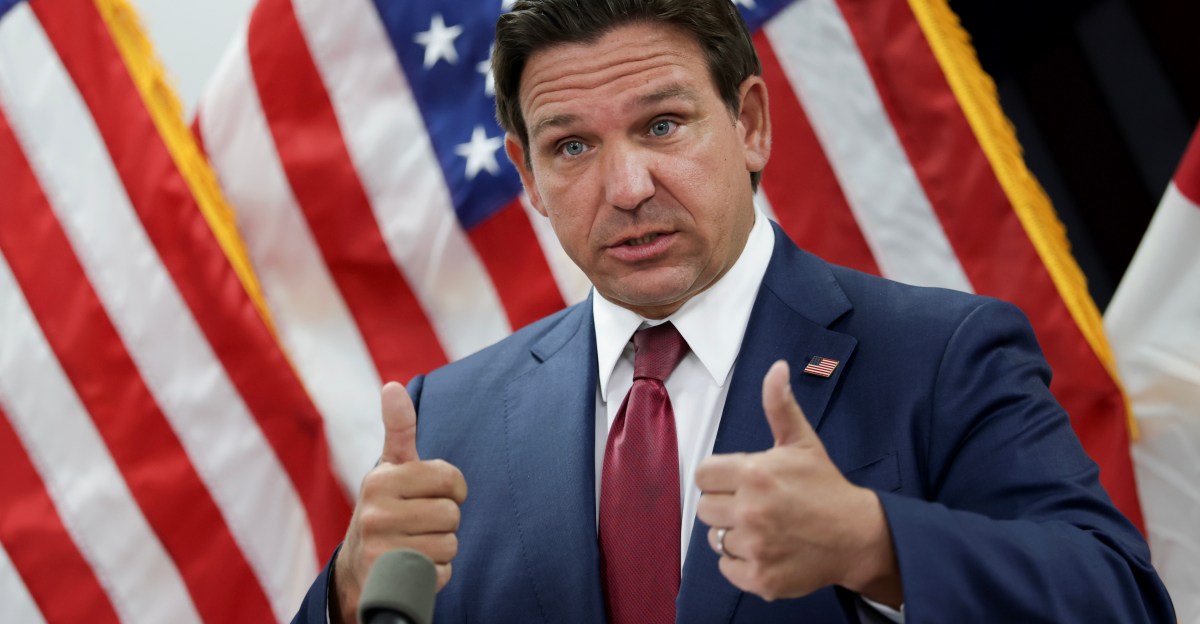Now Reading: Why Florida’s public universities are collaborating with ICE
-
01
Why Florida’s public universities are collaborating with ICE
Why Florida’s public universities are collaborating with ICE

The Trump administration has recently increased its criticism towards prestigious Ivy League institutions such as Columbia and Harvard, implementing significant budget cuts and even threatening to remove their tax-exempt status. However, the situation at state schools has received much less attention, like the public university system in Florida. Governor Ron DeSantis has been using these state schools as the battleground for what he terms a war against “woke” ideologies, gaining national recognition in the process.
While elite Northeastern universities have resisted deportation efforts led by Secretary of State Marco Rubio, DeSantis has openly collaborated with US Immigration and Customs Enforcement (ICE), appointing university presidents sympathetic to this cause. The agreements between Florida’s public universities and ICE allow campus police departments to enforce immigration laws, leading to revoked visas, concerns among faculty members, and student protests.
These collaborations have been described as “force multipliers for ICE” by experts, enabling increased immigration enforcement at the local level. DeSantis, known for his tough stance on immigration, is positioning himself as a strong contender for national office, possibly challenging Trump on immigration policies. The agreements with ICE have sparked demonstrations at Florida International University, where students have expressed discontent with the state’s control over various university aspects, including immigration enforcement.
The episode also delves into the broader implications of such agreements with ICE, contrasting the actions of Florida’s state schools with the Trump administration’s confrontations with elite universities in the Northeast. The conversation highlights concerns about academic freedom, the impact on higher education, and the potential for similar agreements to emerge in other states. The shift in the cultural landscape raises questions about the future of public and private universities across the country amidst these contrasting approaches to immigration enforcement.






